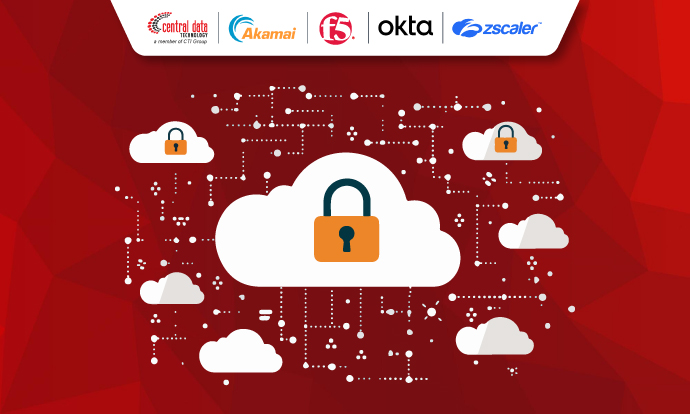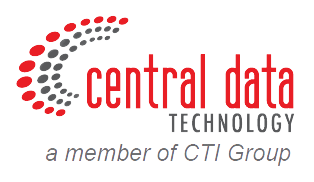
In the rapidly evolving digital era, cloud services have become a key element in the operational strategies of many organizations. The ease of access and flexibility offered by cloud infrastructure have led more companies to use it to store and manage their data. However, alongside these advantages come various security challenges. s. The increasingly complex cyberthreat demands extra attention to protect data and applications in cloud environments.
Cloud Network Security emerges as a primary solution for maintaining the integrity and confidentiality of information stored in the cloud. Technology such as encryption,virtual firewalls, and Identity and Access Management (IAM) serve as crucial pillars in these strategies. By implementing proper security measures, organizations can safeguard their digital assets from various cyber threats.
As network complexity increases, understanding and implementing Cloud Network Security becomes even more critical. In this article, we will discuss the fundamentals of Cloud Network Security, compare it to traditional network security, and explain why it plays such a vital role in protecting data and applications in the digital age.
What is Cloud Network Security?

Cloud Network Security is a security approach that involves protecting the infrastructure, data, and applications running in a cloud environment. It includes using technologies such as virtual firewalls, data encryption, and threat detection tools to ensure the confidentiality, integrity, and availability of cloud resources. By implementing strong authentication, IAM (Identity and Access Management), and network segmentation, Cloud Network Security helps control who can access data and how it is moved or accessed within the cloud network.
Additionally, Cloud Network Security involves real-time monitoring of network activity to detect potential threats or suspicious behavior and ensure compliance with applicable security standards like GDPR and HIPAA. The primary challenge in implementing cloud network security is understanding the shared responsibility model between the user and the cloud service provider, as well as maintaining visibility and control over the dynamic and ever-evolving cloud network.
Difference Between Network Security vs Cloud Network Security
| Aspect | Network Security | Cloud Network Security |
| Protected Environment | Physical infrastructure such as internal company networks, data centers, on-premises, and connected devices. | Cloud infrastructure such as private cloud, public cloud, or hybrid cloud. |
| Control | Fully managed by the internal IT team, including hardware like routers, firewalls, and switches. | Largely managed by the cloud service provider, while the user is responsible for securing their data and applications. |
| Security Approach | Uses hardware and software like physical firewalls, IDS/IPS, and VPNs. | Utilizes cloud-based security solutions such as cloud firewalls, data encryption, IAM management, and API security. |
| Responsibility Model | Full responsibility lies with the user to manage the security of the infrastructure and data. | Uses a shared responsibility model: the cloud provider is responsible for securing the infrastructure, while the user is accountable for securing data and applications. |
| Scalability | Limited scalability based on hardware capacity and infrastructure management complexity. | Highly flexible and easy to scale according to needs, leveraging cloud services that can be automated. |
| Visibility & Monitoring | Full visibility into the local network but monitoring and threat detection are limited to the internal network. | Limited visibility into the cloud infrastructure, but monitoring can be extended with cloud-native services like CloudTrail or CloudWatch. |
| Data Security | Protects data locally using solutions like DLP (Data Loss Prevention) and hardware encryption. | Uses data encryption both in transit and at rest in the cloud, along with granular access controls. |
| Disaster Recovery | Relies on local recovery strategies and physical backups. | Leverages cloud services for fast recovery, such as snapshots, automated backups, and availability zone configurations. |
Why Businesses Need to Use Cloud Network Security
Cloud Network Security is vital as it protects data, applications, and infrastructure stored and operated in cloud environments from cyber threats and security breaches. Here are some key reasons why Cloud Network Security is essential:
- Protection Against Threats and Attacks: Cloud Network Security helps prevent attacks like DDoS (Distributed Denial of Service), data breaches, malware, and insider threats. Since data in the cloud can be accessed from anywhere, the risk of cyber-attacks is higher compared to more controlled on-premises environments.
- Compliance with Regulations: Many organizations using cloud services must comply with regulations and industry standards such as GDPR, HIPAA, or PCI DSS. Cloud Network Security helps ensure that sensitive data is processed, stored, and accessed in compliance with applicable rules, avoiding fines and reputational damage due to non-compliance.
Additionally, with the increasing adoption of cloud and data transfers between various cloud services (multicloud), Cloud Network Security is key to maintaining data confidentiality, integrity, and availability, allowing businesses to operate securely and smoothly without the risk of disruption or data loss.
What are the Benefits of Using Cloud Network Security?
Here’s a detailed explanation of the benefits of using Cloud Network Security:
Improved Security Visibility
Cloud Network Security provides better visibility into network activity in cloud environments. Cloud-native monitoring and analytics tools allow companies to monitor traffic, detect threats, and analyze logs in real-time, making it easier to detect and respond to potential attacks.
Policy-based Security
Cloud network security can be configured with flexible, role-based policies and rules. This allows companies to enforce strict and granular access policies based on user identity, roles, or other attributes, ensuring that only authorized users can access specific resources.
Advanced Threat Prevention
Cloud Network Security offers advanced threat prevention capabilities like AI-based anomaly detection, malware protection, and DDoS mitigation. With more sophisticated solutions, organizations can mitigate security risks before attacks penetrate their defenses.
Automated Monitoring and Configuration
Automation in security monitoring and configuration allows companies to efficiently manage security in dynamic cloud environments. Processes such as security patch updates, compliance monitoring, and configuration changes can be performed automatically, reducing the risk of human error.
Encryption by Default
Cloud services generally offer data encryption by default, both in transit and at rest. This ensures sensitive data is protected from unauthorized access and remains secure even in a security breach.
Centralized, Consistent Security
Cloud network security can be managed centrally, ensuring consistent security policies across the cloud environment. With centralized security management, organizations can more easily oversee security at multiple locations and ensure that all resources are treated according to the same security standards.
Read More: Cloud Security: Identifying the Benefits, Urgency and Challenges to Protect Digital Assets
Recommended Cloud Network Security Solutions from the CDT Team
When it comes to protecting networks and data in cloud environments, selecting the right security solutions is crucial. Several products from CDT (Central Data Technology) offer comprehensive protection and unique features to counter cyber threats in cloud infrastructures.
Here are some recommended products for cloud network security, along with their key benefits and unique selling points:
Zscaler
Zscaler is a cloud security platform that provides comprehensive protection for cloud-based networks and applications. Designed to support digital transformation, Zscaler secures internet access, cloud applications, and internal networks without relying on traditional network architectures. Utilizing a Zero Trust approach, Zscaler ensures that every connection to the cloud is authenticated, encrypted, and protected from threats.
Benefits and Unique Selling Points:
- Zero Trust Architecture: Implements a Zero Trust model to limit access based on user and device identities, enhancing security without relying on network perimeters.
- Real-time Threat Detection: Detects threats and anomalies across the cloud network in real-time, providing protection against malware and ransomware attacks.
- Scalable Security: Supports high scalability for organizations looking to expand operations into multi-cloud environments without increasing security complexity.
- Cloud-native Solution: All functionalities of Zscaler are cloud-based, eliminating the need for additional hardware and simplifying security management.
Okta
Okta is a cloud-based identity platform that offers Identity and Access Management (IAM) solutions. With Okta, organizations can implement strong access control, Multi-Factor Authentication (MFA), and Single Sign-On (SSO) to ensure that only authorized users can access cloud resources. Okta integrates with various SaaS applications and cloud infrastructures, simplifying identity management across the organization.
Benefits and Unique Selling Points:
- Strong Authentication: Provides robust multi-factor authentication to secure access to sensitive applications and data.
- Ease of Integration: Integrates with over 7,000 cloud and on-premise applications, making it easy for organizations to enforce access security across their IT ecosystem.
- Adaptive Access Policies: Uses machine learning to learn user behavior patterns and apply adaptive policies based on risk, such as blocking suspicious access attempts.
- Self-Service Password Reset: Allows users to manage their own access, reducing IT workload and improving user productivity.
F5
F5 offers application security solutions and network traffic management services designed to protect cloud applications from various threats. F5 includes Web Application Firewall (WAF), DDoS protection, and load balancing solutions that enable applications to run securely and efficiently. F5 is known for its ability to safeguard modern applications and APIs across various cloud platforms.
Benefits and Unique Selling Points:
- Advanced Application Protection: Provides advanced application protection against OWASP Top 10 attacks such as SQL injection, Cross-site Scripting (XSS), and automated bots.
- Application Delivery Controller (ADC): Optimizes application delivery with load balancing and caching, improving application performance while maintaining security.
- API Security: Secures APIs with high-level protection, preventing API misuse and data leaks.
- Multi-cloud Support: Can be deployed across multiple cloud and hybrid cloud environments, enabling organizations to leverage cloud services without compromising security.
Akamai
Akamai is a CDN and security platform designed to protect web applications and APIs from cyber threats. With its extensive edge network, Akamai can mitigate DDoS attacks, protect applications from exploits, and provide reliable web security services. Akamai’s solutions deliver high performance while ensuring that applications remain secure across all connection points.
Benefits and Unique Selling Points:
- Global Edge Network: Akamai’s global edge network enables processing and attack mitigation closer to the source of the threat, reducing latency and enhancing response speed.
- Intelligent Threat Intelligence: Leverages global threat data to detect and block the latest threats targeting web applications and APIs.
- DDoS Protection: Provides integrated, high-capacity DDoS protection to safeguard against attacks that can cripple applications.
- Web Application Firewall (WAF): Secures applications against injection attacks, cross-site scripting, and other threats that could compromise or expose data.
By utilizing cloud security products such as Zscaler, Okta, F5, and Akamai, organizations can build a robust and flexible Cloud Network Security strategy, protecting their infrastructure from cyber threats while ensuring the availability and integrity of their cloud services.
Get the Best Cloud Network Security Solutions from CDT
To get cloud security products from CDT, you can visit the official CDT website and contact the sales team for more information on the solutions that best fit your organization’s needs.
By understanding and effectively implementing Cloud Network Security, organizations can tackle security challenges in the increasingly complex digital world while ensuring their data and applications remain safe.
Author: Ary Adianto
Content Writer, CTI Group

